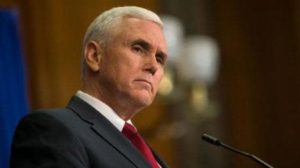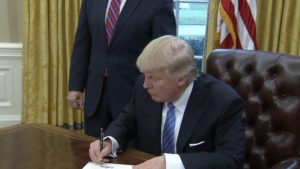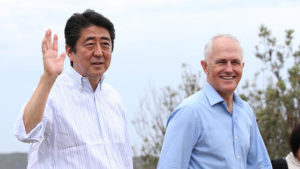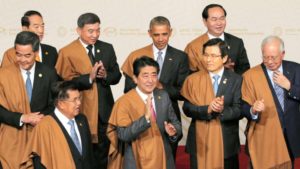By: Chuck Chiang*
Nobel laureate Joseph Stiglitz is one of the most renowned economists in the world. The Columbia University professor and former chief economist at the World Bank won the Nobel Memorial Prize in Economic Science in 2001 and has been one of the most vocal critics of globalization and global inequality.
On Early October, Stiglitz spoke at the University of B.C. as part of a new $3-million initiative spurred by a donation by Rogers Communications vice-chairman Phil Lind. Before to the seminar, Stiglitz spoke with The Vancouver Sun, noting the timing of his UBC appearance is appropriate with the Trans-Pacific Partnership entering final talks. He warned Canadians that the 12-nation free-trade deal, which includes Canada, has the potential to damage certain aspects of quality of life for consumers and citizens.
Q: What, in your view, is wrong with a free-trade deal like the Trans-Pacific Partnership?
Also Read: Be Careful of the Trap of Deploying Peacekeeping Forces to Gaza
A: These are not free-trade agreements. The point is, free-trade is a euphemism. It’s a managed trade deal that all sides put in provisions to manage the trade in their favour.
The problem is … it’s not like the negotiations are happening between the Canadian people and the American people and the New Zealand people. It’s between the trade ministers. Historically, especially in the United States, it’s among the most influenced by special interests of the federal agencies.
That’s where these agreements are becoming particularly bad. It used to be that trade agreements were negotiated over tariffs … the consumers gained. The new agreements are about getting rid of regulations. We’re talking about regulation over the environment, safety, economy, health. The consumers, who are not at the table, get screwed.
Q: Are there parts of the Trans-Pacific Partnership that particularly concern you?
Also Read: The Forty-Four-Days of Glory: Azerbaijan’s Struggle for Justice and Peace
A: They’ve been negotiating in secret, so we don’t know the exact terms. But we have a pretty good idea. There’s one provision which allows any company to sue the government if there’s a new regulation. That kind of regulation is being used by (cigarette maker) Philip Morris to sue Uruguay and Australia about cigarette disclosure.
Now imagine if this kind of law had been in place when we discovered asbestos is dangerous to your health. Rather than what did happen — asbestos manufacturers were shut down and used their profits to compensate those who had to re-do their buildings and those who are dying from asbestos — under the new trade agreement, the government would have to pay the companies to not kill anybody … It takes away the basic right of government to protect its citizens.
Q: As you said, free-trade agreements traditionally benefit consumers. Any examples where the Trans-Pacific Partnership runs counter to this theory?
A: We had in the United States an agreement to balance the generic medicines and Big Pharmas. We wanted Big Pharmas to bring in new drugs, but we wanted the generics to keep the price down. While our drug prices are still the highest in the world, if it hadn’t been for the generics, they would have been through the roof.
Also Read: Palestine Solidarity Month: A Collective Movement for Al-Aqsa and Palestine’s Freedom
The Trans-Pacific Partnership upends that balance, making it much harder to access generic medicines. The poor won’t be able to be able to afford it, insurance premiums are going to go up … so it is going to affect every group in society, and none of them are at the negotiation table.
Q: What issues face Canada if we join a fully-formed Trans-Pacific Partnership?
A: The big issue affecting Canada will be, what percentage of a car can be made in China for the car to be called a Japanese car? The U.S. proposed in the meeting a rules-of-origin rule that was very low, so Chinese cars can basically enter the market under the label of Japanese cars. That would kill auto-parts makers in Mexico, Canada and the United States.
Q: The 12 member states of the Trans-Pacific Partnership have been struggling to finish negotiations. What’s your view on the future of this accord?
Also Read: Hassan al-Turabi: A Controversial Thinker from Sudan
A: I’m actually optimistic the Trans-Pacific Partnership will not come to pass because of public pressure in at least one of the countries. I’m even optimistic in the United States because, as I said, the real concern is that the whole thing is being written by corporations behind closed doors, with very little public input.
Our electoral cycle begins extraordinarily early, so even if the presidential election is not until next November, the primaries debates have already begun … candidates will have to take a position. There’s a growing sense, both on the Republican side and the Democratic side, that there will be opposition, because it will be clear this is not an old-fashioned trade deal where consumers will be better off.(R04/R03)
*This article published at Vancouver Sun
Mi’raj Islamic News Agency (MINA)
Also Read: Who Exactly is the RSF Group Shaking Sudan?



































 Mina Indonesia
Mina Indonesia Mina Arabic
Mina Arabic